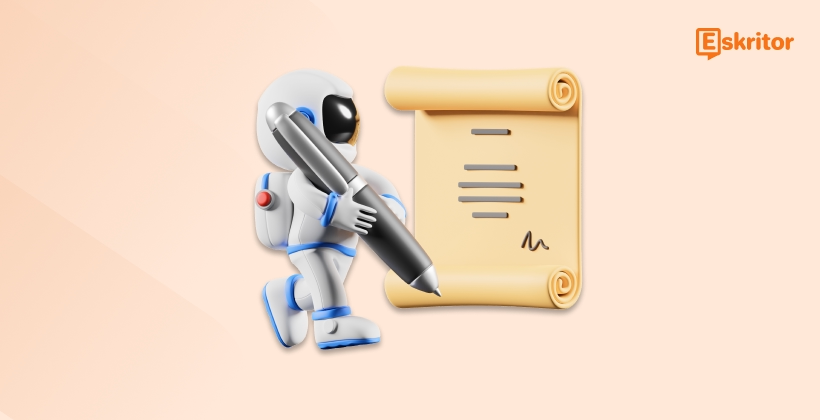Why AI Writers Are Essential for Modern Businesses
Why AI Writers Are Essential for Modern Businesses
Blog Article
The Role of AI in Modern Editing Practices
As synthetic intelligence (AI) evolves, it remains to revolutionize how exactly we method modern editing practices. From grammar modification methods to advanced material technology tools, AI Editing is reshaping the way authors, authors, and makers improve their work. That blog considers the position AI represents in modern modifying and the impact it's across industries.

AI-Powered Instruments Leading the Demand
AI-powered tools have grown to be an indispensable element of modifying workflows. Computer software fueled by organic language running (NLP) and unit learning can perform responsibilities like syntax checks, stylistic ideas, and word restructuring with incredible pace and accuracy.
As an example, AI-based syntax checkers can identify mistakes that the eye might ignore, such as for example subject-verb agreement issues or lost modifiers. Equally, fashion improvements made by AI make sure that tone and movement align with the intended market, that is priceless for skilled editors.
These instruments are not only restricted to traditional syntax corrections. They are designed for increasing readability, transforming inactive style to effective style, and even paraphrasing entire paragraphs without changing the meaning.
Performance Matches Time Savings
Reports reveal that the utilization of AI methods may reduce editing time by around 30%. As opposed to poring around every sentence manually, publishers may emphasis their attempts on creative and proper components of content. That change enables professionals to manage larger amounts of text in faster periods, which is particularly useful for industries like publishing and digital marketing.
Additionally, predictive AI functions can highlight repeating mistakes, helping authors improve their skills around time. For companies, that equals fewer methods used on changes and more polished components from the comfort of the start.
Increasing Accessibility and Globalization
AI's position in contemporary modifying extends beyond efficiency. Sophisticated translation and localization instruments allow designers to adjust material effortlessly for world wide audiences, wearing down language barriers with precision. This engineering ensures that the exact same meaning can resonate with cultures global while maintaining its authenticity.
AI also increases inclusivity standards by improving convenience in content. For instance, methods may recognize probably non-inclusive language and recommend alternatives. This ability enables writers to improve writing therefore it resonates with varied audiences.

Striking a Harmony Between AI and Human Creativity
While AI excels in rate and reliability, it does not change human editors. Machines usually absence the ability to interpret nuance, sentiment, or cultural context fully. The best system mixes AI's performance with individual imagination and perception, causing really outstanding work.
By leveraging these technologies in modern editing practices, designers and publishers alike may create top quality material that aligns with the fast-paced needs of today's digital world. AI will be the future of modifying, however the human feel can be essential for storytelling and connection. Report this page